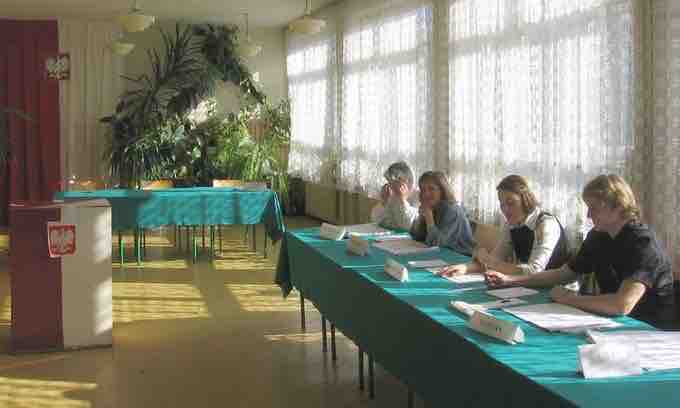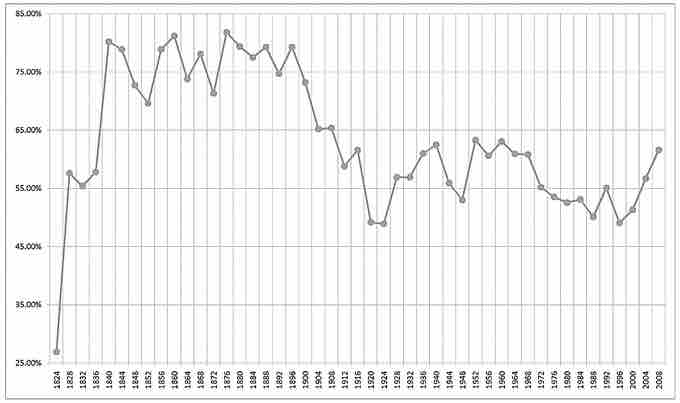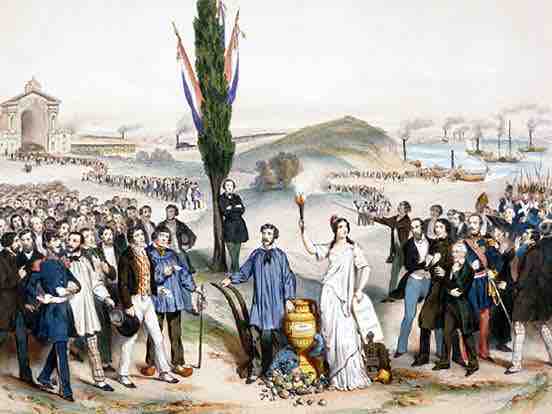Purposes of Elections
Definition
An election is a formal decision-making process by which a population chooses an individual to hold public office. Elections have been the usual mechanism by which modern representative democracy has operated since the 17th century. Elections fill offices in the legislature, sometimes in the executive and judiciary, and for regional and local government. This process is also used in many other private and business organizations, from clubs to voluntary associations and corporations.

Presidential Elections in Poland
Presidential Election 2005 in Poland (second round of voting, Oct.23rd).
History of Elections
The universal use of elections as a tool for selecting representatives in modern democracies is in contrast with the practice in the democratic archetype, ancient Athens. As the elections were considered an oligarchic institution and most political offices were filled using sortition, also known as allotment, by which officeholders were chosen by lot.
Elections were used as early in history as ancient Greece and ancient Rome, and throughout the Medieval period to select rulers such as the Holy Roman Emperor and the Pope. In ancient India, around 920 AD, in Tamil Nadu, Palm leaves were used for village assembly elections. The palm leaves with candidate names, will be put inside a mud pot, for counting. Ancient Arabs also used election to choose their caliphs, Uthman and Ali, in the early medieval Rashidun Caliphate; and to select the Pala king Gopala in early medieval Bengal.
Suffrage
The question of who may vote is a central issue in elections. The electorate does not generally include the entire population; for example, many countries prohibit those judged mentally incompetent from voting, and all jurisdictions require a minimum voting age. Suffrage is the right to vote gained through the democratic process. Citizens become eligible to vote after reaching the voting age, which is typically eighteen years old as of 2012 in the United States. Most democracies no longer extend different rights to vote on the basis of sex or race.

Graph of Voter Turnout in U.S. Presidential Elections, 1824-Present
Between 1824 and 1840, voter turnout when from about 26% to 80%. This extremely sharp rise was caused by the removal of property qualifications from the right to vote.
Where universal suffrage exists, the right to vote is not restricted by gender, race, social status, or wealth. It typically does not extend a right to vote to all residents of a region. Distinctions are frequently made in regard to citizenship, age, and occasionally mental capacity or criminal convictions. Suffrage is typically only for citizens of the country, though further limits may be imposed. However, in the European Union, one can vote in municipal elections if one lives in the municipality and is an EU citizen; the nationality of the country of residence is not required. In some countries, voting is required by law. If an eligible voter does not cast a vote, he or she may be subject to punitive measures such as a small fine. Compulsory voting is a system in which electors are obliged to vote in elections or attend a polling place on voting day. If an eligible voter does not attend a polling place, he or she may be subject to punitive measures such as fines, community service, or perhaps imprisonment if fines are unpaid or community service not performed.

Universal Suffrage
Suffrage universel dédié à Ledru-Rollin, painted by Frédéric Sorrieu in 1850. This lithography pays tribute to French statesman Alexandre Auguste Ledru-Rollin for establishing universal male suffrage in France in 1848, following the French Revolution of 1848.